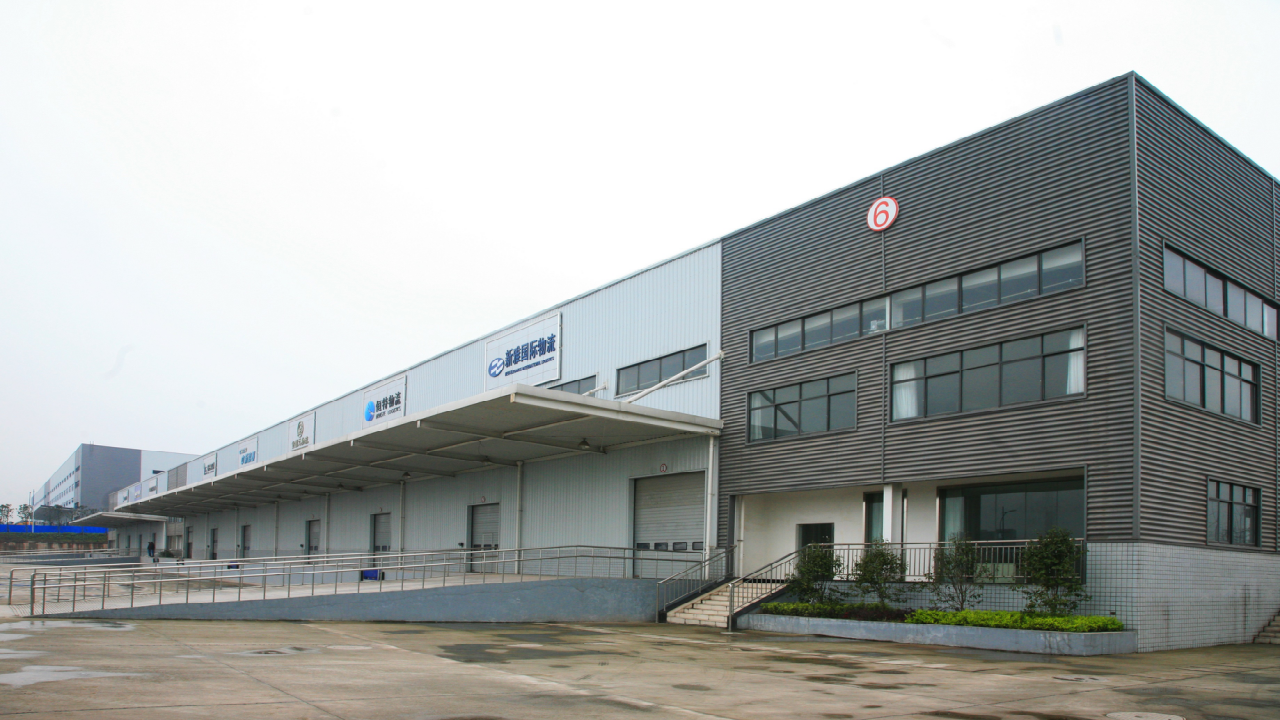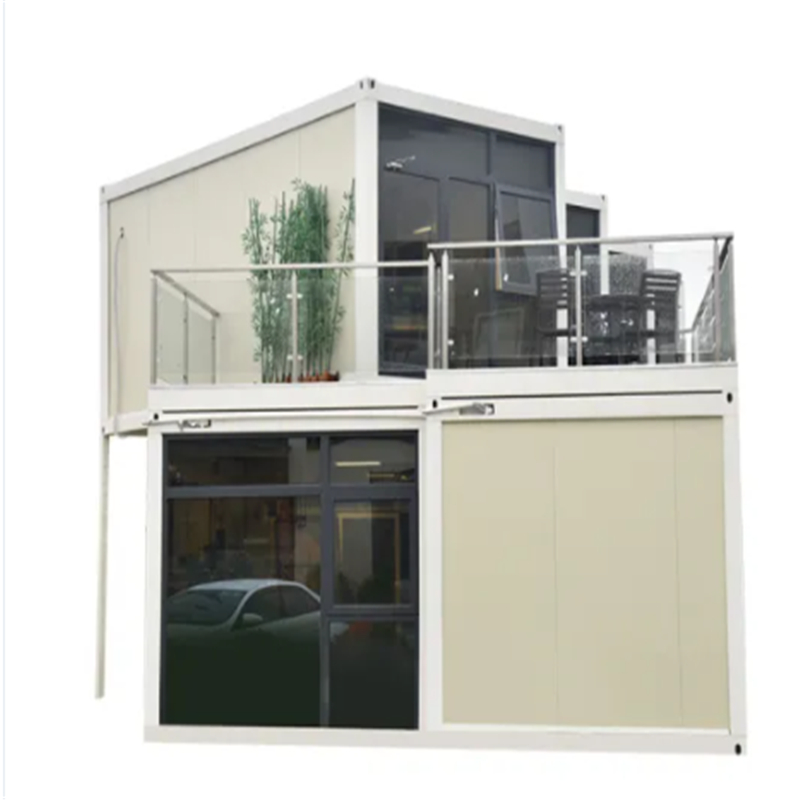As industries around the world increasingly embrace sustainability, the construction sector faces mounting pressure to reduce its environmental footprint. Traditional buildings, especially temporary ones such as on-site offices, pop-up retail booths, or event facilities, often come with significant carbon costs. From energy-intensive material sourcing to lengthy construction timelines and inefficient transport logistics, the environmental toll adds up quickly. In contrast, container houses—especially those designed for industrial and commercial applications—are emerging as a low-impact, high-efficiency solution that aligns with global green goals.
The Carbon Cost of Traditional Temporary Buildings
Conventional buildings constructed for temporary or mobile use often depend on traditional materials such as wood framing, drywall, fiberglass insulation, and a host of adhesives and fasteners. While these materials are readily available, their production processes are energy-intensive and carbon-heavy. From the extraction of raw materials to the factory processing and transportation to the construction site, each stage generates significant emissions. Furthermore, the on-site assembly of these buildings typically involves heavy machinery and extended labor hours, which further increases fuel consumption and the overall carbon footprint.
Temporary buildings are also plagued by poor energy performance. Many are constructed quickly with limited attention to thermal insulation, airtightness, or HVAC efficiency. As a result, they require more energy to maintain comfortable indoor temperatures, leading to higher electricity or fuel consumption over their lifecycle. The environmental cost doesn't end there—once these buildings outlive their usefulness, they are frequently demolished rather than relocated or recycled. This demolition process contributes to construction and demolition (C&D) waste, much of which ends up in landfills. The disposal of these non-biodegradable materials poses long-term environmental risks and negates any initial cost savings associated with temporary structures. In contrast, container-based buildings offer a more sustainable alternative by addressing many of these inefficiencies from the outset.
Modular Offices & Workshops: Reconfigurable Steel Shells
Industrial container houses, made from repurposed steel shipping containers, are redefining what a sustainable workspace can look like. These units are inherently modular, meaning they can be configured, stacked, expanded, or downsized according to the specific needs of a business or project. Once the steel structure is in place, high-performance insulation, reinforced flooring, and built-in utilities turn them into durable, climate-controlled work environments.
Yantai Jedha Industrial and Trading Co., Ltd. has pioneered the development of these reconfigurable steel shells to suit a range of industrial applications. Whether used as project management offices at a remote construction site or as temporary warehouses during logistics overflow, their modularity provides unmatched flexibility without compromising structural integrity.
Because these buildings are largely prefabricated, there is minimal construction waste. Components are produced in controlled factory settings, ensuring better quality control and fewer material losses. More importantly, when a container building is no longer needed at a given location, it can be easily disassembled and redeployed elsewhere, dramatically extending its lifecycle.

On-Site Energy Harvesting: Solar Canopies and Rainwater Capture
A growing number of businesses are combining container structures with sustainable energy technologies to reduce their reliance on the grid. Modular container offices can be equipped with solar panels on their rooftops or adjacent solar canopies. This not only helps offset energy use but also supports businesses looking to meet renewable energy targets or qualify for green building incentives.
Similarly, many industrial container units are being designed with integrated rainwater harvesting systems. These setups can capture and filter rainwater for non-potable uses like irrigation, equipment cleaning, or even sanitary facilities. Especially in off-grid or remote locations, these self-sustaining features reduce the need for external utilities and lower operating costs.
Yantai Jedha offers container units that come pre-wired for solar systems and compatible with energy storage solutions. Optional upgrades include low-flow water fixtures and advanced climate control systems, which further enhance energy efficiency.
Supply-Chain Benefits: Localized, Just-In-Time Delivery Reduces Transport Emissions
One of the most underappreciated aspects of sustainability is logistical efficiency. Traditional construction requires multiple deliveries of raw materials, repeated trips by skilled labor, and large-scale machinery on-site. This fragmented supply chain not only introduces delays and cost overruns but also significantly increases fuel consumption.
Container house solutions streamline this process. Because the modules are largely completed off-site, a single delivery can replace dozens of trips that would be necessary in conventional builds. Yantai Jedha leverages just-in-time logistics to ensure that container units arrive when they are needed, reducing on-site storage needs and minimizing idle time. Their strategic manufacturing and distribution hubs also allow for region-specific delivery that cuts down long-haul transport emissions.
For large-scale or multi-site projects, container modules can be pre-assembled in batches and deployed with precision timing, improving project efficiency and environmental performance simultaneously.
Jedha’s Industrial Container Solutions: Tailored to Green Certification Standards
As environmental regulations tighten and consumer expectations evolve, more companies are committing to sustainable development and green building practices. Achieving certifications like LEED (Leadership in Energy and Environmental Design) and BREEAM (Building Research Establishment Environmental Assessment Method) has become an important milestone for enterprises seeking to reduce their environmental impact, boost corporate social responsibility profiles, and unlock tangible benefits such as tax incentives, utility savings, and positive brand recognition.
Yantai Jedha Industrial and Trading Co., Ltd. offers industrial container house solutions that are purposefully designed to align with these rigorous sustainability benchmarks. Each container module incorporates environmentally conscious materials and engineering strategies, including recycled steel frames, low-VOC (volatile organic compound) finishes, integrated insulation, and energy-efficient HVAC systems. Natural lighting and ventilation are optimized through strategic window placement and airflow modeling, helping reduce reliance on artificial lighting and mechanical cooling.
Jedha's experienced engineering team works directly with clients to customize designs according to specific sustainability goals. Whether it's reducing carbon footprint through passive solar design or implementing greywater recycling systems, Jedha provides tailored solutions that support LEED, BREEAM, and other green certification requirements. The company also assists with energy modeling reports, waste minimization planning, and material sourcing documentation required for official certification submissions.
What sets Jedha apart is its balance of functionality, performance, and aesthetic appeal. Their container units are not only robust and adaptable for industrial use but also customizable with facade treatments, branded finishes, and ergonomic interiors. By choosing Jedha’s container solutions, businesses can confidently advance their ESG (Environmental, Social, and Governance) initiatives while ensuring long-term operational efficiency and design excellence.

Conclusion:
The global push toward sustainability is not just a trend—it's a necessity. For industrial and commercial users looking to lower their environmental impact without sacrificing functionality, container houses offer a compelling solution. Their modularity, energy efficiency, and minimal waste generation make them ideal for modern businesses committed to green operations.
Whether it's a tech company seeking a temporary innovation lab, a construction firm needing a mobile office, or an event organizer building an eco-friendly pop-up venue, Yantai Jedha Industrial and Trading Co., Ltd. delivers turnkey container solutions that check all the boxes. From code-compliant engineering to sustainable material sourcing and efficient logistics, Jedha helps bring the future of green building to life, one container at a time.
To learn more about how container-based structures can transform your business's environmental profile, visit www.jedhabuilding.com or get in touch with the Jedha team today.











